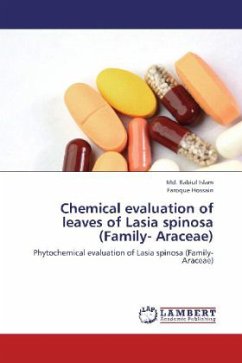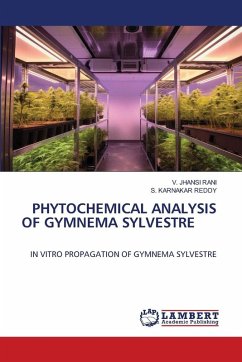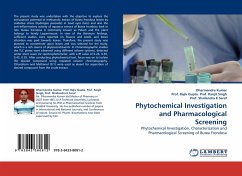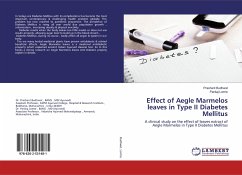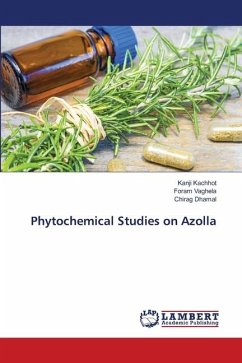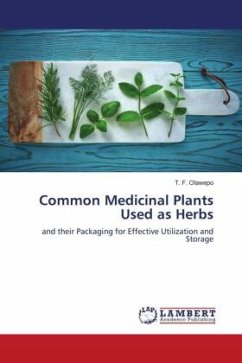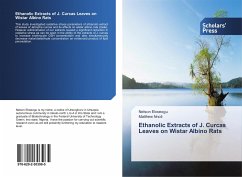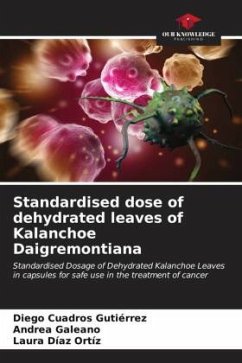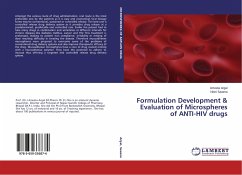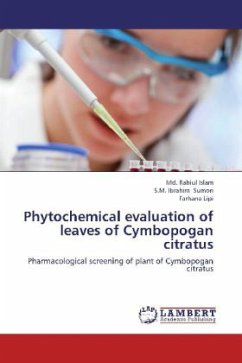
Phytochemical evaluation of leaves of Cymbopogan citratus
Pharmacological screening of plant of Cymbopogan citratus
Versandkostenfrei!
Versandfertig in 6-10 Tagen
32,99 €
inkl. MwSt.

PAYBACK Punkte
16 °P sammeln!
Cymbopogan citratus, an herb from the family Gramineae was investigated for its phytochemical & biological activities. Ethanolic extract of the leaves were tested for the presence of different chemical groups such as Reducing sugar, Steroids, Glycosides, Flavonoids and Tannins.The biological interest of these compounds, coupled with the use of this plant in traditional medicine prompted us to check Cymbopogan citratus, for analgesic, cytotoxicity and antidiarrhoeal activity, testAt the 250 mg/kg body weight dose, the extract showed a mild writhing inhibition (28%) and at the 500 mg/kg body wei...
Cymbopogan citratus, an herb from the family Gramineae was investigated for its phytochemical & biological activities. Ethanolic extract of the leaves were tested for the presence of different chemical groups such as Reducing sugar, Steroids, Glycosides, Flavonoids and Tannins.The biological interest of these compounds, coupled with the use of this plant in traditional medicine prompted us to check Cymbopogan citratus, for analgesic, cytotoxicity and antidiarrhoeal activity, testAt the 250 mg/kg body weight dose, the extract showed a mild writhing inhibition (28%) and at the 500 mg/kg body weight dose, the extract showed a potent writhing inhibition (88.8%) in acetic acid induced writhing method in mice and the results were statistically significant (P0.05 and P0.001 respectively). A general toxicity of the extracts was assessed by a simple and low cost assay using brine shrimp lethality as an indicator of toxicity. The extract of leaves produced significant writhing inhibition in acetic acid induced writhing in mice at the oral dose of 500 mg/kg body weight (P0.001), which was comparable to the standard drug Loperamide at the dose of 50 mg/kg of body weight.



